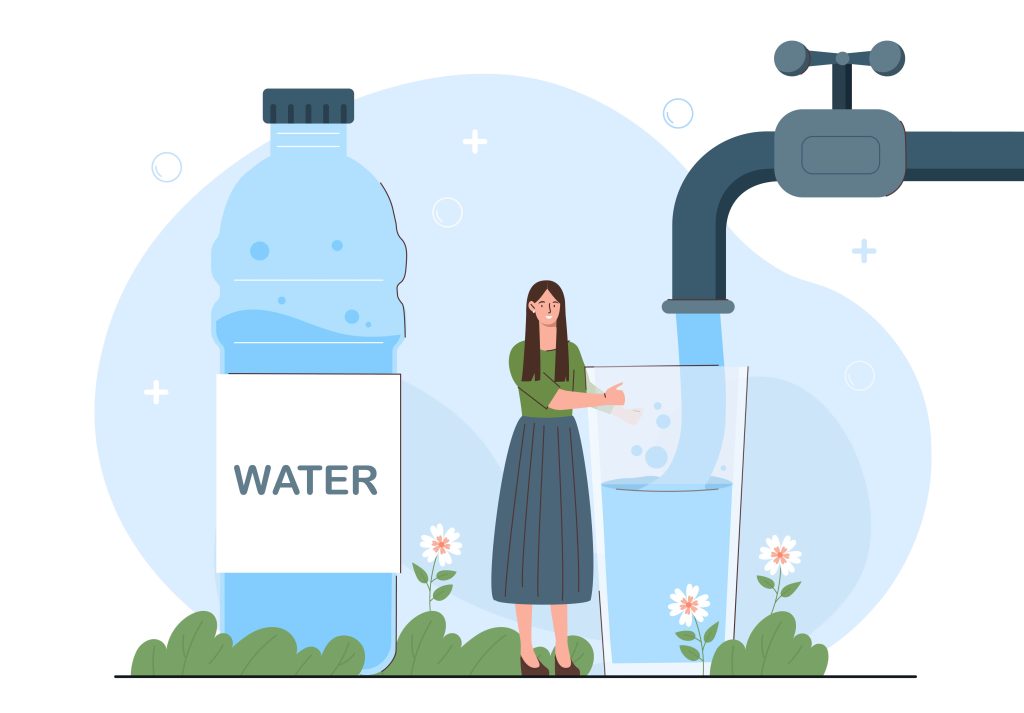Why is Drinking Water During Fasting Important, Especially for Women
First of all, drinking water aids the regulation of glucose levels in the blood, and this helps burn fat and enhances weight loss [1]. Furthermore, water can level up the metabolism rate, which increases the body’s ability to burn fat [2]. As women’s rate of metabolism is slower than men’s, drinking more water more often will aid in speeding up the metabolic process, aiding in weight loss. Drinking water also supports digestion and proper utilization of food. It is also crucial for women to keep themselves hydrated. Researchers have warned that when a person loses about 1.5% of their body water, they could experience symptoms like headaches. If more water is lost due to daily activities without replacing it, the headache would become more severe. Other symptoms like dizziness, weakness, mood changes and confusion could also occur from this point [3].
How Much Should A Fasting Woman Drink
On average, a woman should drink at least 9 glasses of water daily which is approximately 2 liters as recommended by The Institute of Medicine. This provides 80% of the total water needed by the body, while the remaining 20% is gotten from food. This portion of water usually gotten from food wouldn’t be available during intermittent fasting, so people would have to make up for it by taking more water than normal [4]. However, how much water a woman should consume will vary from case to case due to her different menstruation conditions, health, diet, and exercise routines. Our advice to you is, to start with daily consumption of 2 liters of water, and if you notice any side effects or discomfort which might be associated with insufficient water intake (i.e. constipation, headaches, weight-plateau, etc), you should increase both the quantity and frequency of your water consumption.
What You Can Drink
Fasters can consume water in several ways. Plain water is the most appropriate choice of fluid during intermittent fasting. Other clear fluids like mineral water and sparkling water can also be taken. Fast-friendly drinks like black coffee and tea are also acceptable, but they must be taken plain, without milk, sugar or any other additive. Broths can also be consumed based on your fasting restrictions and requirements. Please refer to “What Can You Drink During Fasting?” for more details.
Use Tools to Help You Meet Your Daily Water Consumption Need
In a busy life, it seems difficult to keep track of water consumption. There are some techniques that could help, such as carrying a bottle of water around during daily activities. This helps to serve as a reminder to drink more water and stay hydrated. Another easy way is to set a properly organized reminder through FastingQueens. Our mobile app provides you the facility to set the first and last reminder in a day for consuming water. It also allows you to select the time you would prefer to be reminded throughout the day to drink water. We hope our well-thought-out app could be your best companion on the way to a healthy and safe fasting journey.
References:
- Thomas Wrona (2022). What Can You Drink During Intermittent Fasting? Doctor Kiltz. Link
- Research article (2022). Using Intermittent Fasting as a Non-pharmacological Strategy to Alleviate Obesity-Induced Hypothalamic Molecular Pathway Disruption. Frontiers in Nutrition. Link
- Dehydration: Causes & Symptoms. Cleveland Clinic. Link
- Water. The Nutrition Source. Harvard T.H. Chan School of Public Health. Link

